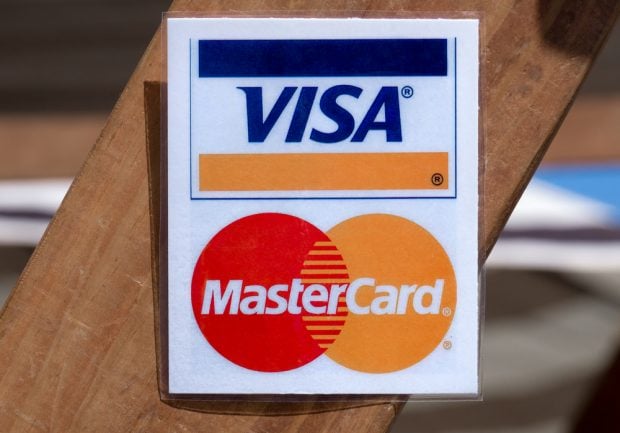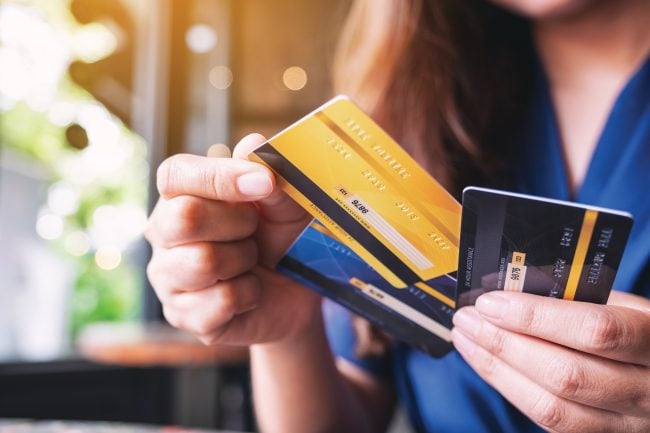 The bad news: there presently is no seat for you on theIsis train which just left the station, as the pioneering NearField Communication tap-and-pay mobile payments wallet hasannounced a national rollout with no credit union involvement.
The bad news: there presently is no seat for you on theIsis train which just left the station, as the pioneering NearField Communication tap-and-pay mobile payments wallet hasannounced a national rollout with no credit union involvement.
The broader news: suddenly, amid rising skepticism about thenear-term potential for a mobile phone-based digital wallet, aproduct will be widely available and could potentially be on thephones of millions of consumers within a very few weeks. “Therealready are around 20 million NFC phones in the U.S.,” said JamieJohnson, director of marketing for Isis.
|Jointly owned by mobile carriers Verizon, AT&T and T-Mobile,the Isis mobile wallet will work on “over 40 mobile phone models,”said Johnson.
|He added that there are several hundred thousand merchantlocations already equipped to handle contactless payments,including NFC, and included are well-known brands such as McDonald's andWhole Foods. Expectations are that as merchants install EMV-compliant terminals, there will be a simultaneous expansionof the numbers of locations able to handle NFC.
|Add the number of NFC phones with increasing number of retailersthat will accept NFC and that augurs well for Isis, suggestedJohnson.
|Important, too, said Johnson, is that the large retailapparatuses of the three wireless carriers involved in Isis willnow engage in promoting Isis. The implication is that if a consumerwalks into a Verizon store today and walks out with a new phone, aclerk will at least have tried to sell that consumer on Isis andmay actually have helped the consumer download and set up the app.Ditto for AT&T and T-Mobile.
|As for what financial products will interact with Isis, Johnsonsaid that credit cards from Chase and American Express presentlydo. He added, “We are in talks with other institutions and morewill be added.”
|There is no indication that Isis plans to pursue smallerfinancial institutions, such as most credit unions.
|That may not represent as much of a snub as you may fear.Barclays and Capital One both participated in the Isis trials butneither is involved in the nationwide Isis launch. Neither haselaborated on why they removed themselves. But their departure hasdarkened the outlook for Isis, according to many observers.
|Even so, Randy Vanderhoof, executive director of the Smart Card Alliance,indicated that he did not believe the three carriers – accomplishedretailers – would have committed their stores to this effort ifthey did not believe Isis is a product consumers will want.
|As for what the Isis rollout means, Peter Olynick,who focuses on digital wallets for Carlisle & GallagherConsulting Group, said, “This will increase awareness for all themobile wallets as people start to realize the situations whereusing a mobile might be more convenient than their currentmethods.”
|Paul Fiore, CEO of CU Wallet, agreed: “Any announcement aboutmore availability of digital wallets will be good for all ofus.”
|He expressed some skepticism about Isis' viability – its origin,he said, dates back to an era where carriers had nearly completecontrol over the apps that showed up on phones on their networks.Now those decisions are made by consumers along with Apple andGoogle, which operate the two biggest apps storefronts, and thecarrier clout has receded enormously.
|Exactly how and where the carriers can succeed in insertingthemselves into the mobile commerce equation is unclear, suggestedFiore.
|That skepticism only deepens with Chris Gardner, a founder ofPaydiant, an Isis competitor (Paydiant has created a mobile walletthat both FIS and CU Wallet use). He said, “The problem is that the banks arerunning for the hills from Isis. Their pricing model makes it moreexpensive than issuing plastic cards.”
|In an interview, Isis' Johnson insisted that Isis does not wanta slice of the interchange fee on electronic transactions. He saidthat Isis makes its money by charging participating credit cards afee – he declined to offer specifics on amounts – for creating asecure channel for handling transactions.
|Another revenue producer will be offering participatingmerchants a channel for distributing targeted offers to consumers.“We will make money from both sides of the transaction,” saidJohnson.
|One interesting difference with Isis is that, according toJohnson, Isis will have no visibility into the details ofparticular transactions. Access to and ownership of that data hasemerged as a flashpoint with Google Wallet and PayPal, on one side,and financial institutions on the other, but, said Johnson, it is anon-issue with Isis.
|The data, he said, will belong to the merchant and the cardissuer and that will be that.
|Either way, don't expect a stampede into NFC use at point ofsale. The optimism around NFC-fueled mobile payments that aboundeda year or two ago has been replaced with a more temperateoutlook.
|“NFC is years away from ubiquity,” said Vanderhoof. “This is nothappening overnight.”
Complete your profile to continue reading and get FREE access to CUTimes.com, part of your ALM digital membership.
Your access to unlimited CUTimes.com content isn’t changing.
Once you are an ALM digital member, you’ll receive:
- Critical CUTimes.com information including comprehensive product and service provider listings via the Marketplace Directory, CU Careers, resources from industry leaders, webcasts, and breaking news, analysis and more with our informative Newsletters.
- Exclusive discounts on ALM and CU Times events.
- Access to other award-winning ALM websites including Law.com and GlobeSt.com.
Already have an account? Sign In
© 2024 ALM Global, LLC, All Rights Reserved. Request academic re-use from www.copyright.com. All other uses, submit a request to [email protected]. For more information visit Asset & Logo Licensing.









